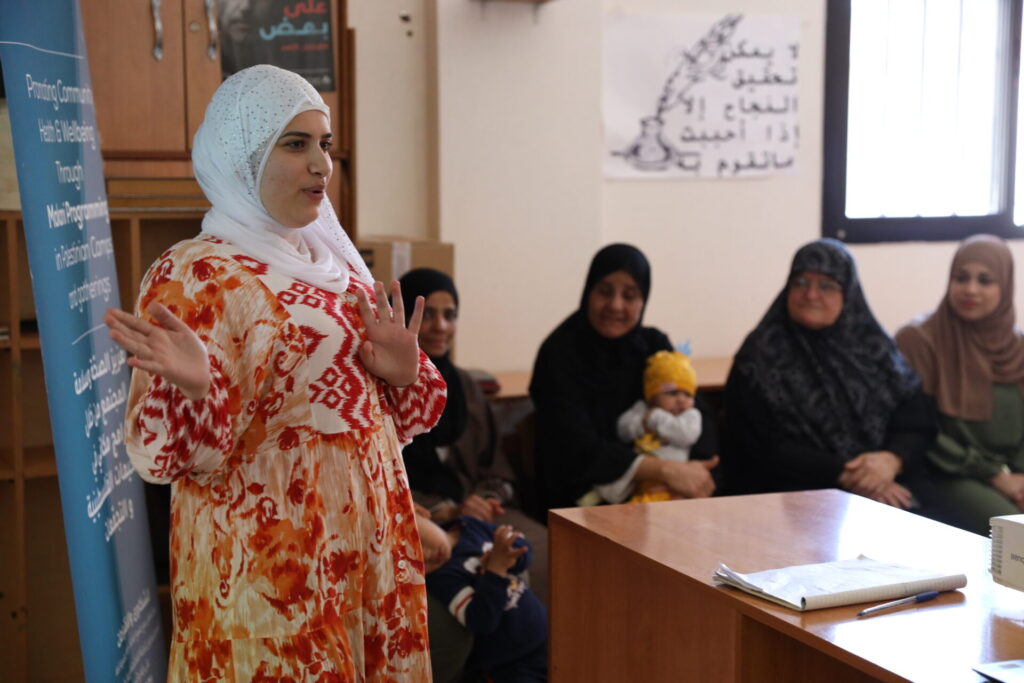Feb, 2011
A2Z, the USAID Micronutrient and Child Blindness Project, overseen by AED, has been addressing micronutrient deficiencies in two widely consumed foods in the West Bank: flour and salt.
The project, which commenced in April 2008, aims at improving the diet of Palestinians by providing financial and technical assistance to the Palestinian Authority to strengthen its food fortification program thus increasing the level of essential micronutrients.
Anera, through A2Z, has been providing training for both food inspectors, in charge of drawing food samples for testing, and for employees of the Central Health Laboratory at the Ministry of Health, who test the level of micronutrients in the food samples.
At the Central Health Laboratory, ten workers who are in charge of testing the level of essential micronutrients gathered for intensive training conducted by an international expert in the field.
Ibrahim Salem, Director at the Central Public Health Laboratory, has been overseeing the on-the-job training and monitoring the development of micronutrient testing. “On-the-job training has significantly enhanced the lab employees’ testing methods in a reasonable amount of time, and allowed a good number of our lab employees to partake in and learn from it. Our staff participated in several trainings that were not conducted at the lab, and I can tell that they are benefiting a lot more with these on-the-job trainings; they are simply much more convenient.”
Hashem Injas, Head of the Pesticide Division, agrees. “The on-the-job training has developed and enhanced our evaluating and testing methods. Because we directly implement the new tests with our testing equipment, it is easier to get it right and immediately address any difficulties we might face during implementation.”
“We used to follow quite cumbersome testing methods for Vitamin A and iron, but through this training, we’ve learned easier and more sensitive methods, which we immediately adopted and implemented,” said Ahmad Al-Barghouti, Head of Medicine Analysis. “Conducting the training in English is also something that has helped a lot since we all understand English and there is no need to waste time on translating the material into Arabic.”
The trainees set standards for their fortified foods, including flour and salt, through external quality control. “By comparing our fortified products with the external samples, we’ve come to the conclusion that our fortified food samples are within good standards,” said Injas.
The trainees conduct several important tests, including testing levels for vitamin A, which is considered fundamental in any diet. “Deficiency in Vitamin A may cause blindness. This vitamin is very important for the health of a pregnant woman and their fetus,” explained Maha Al-Barghouti, a lab worker and program trainee.
The lab relies on an award-winning medical mixture containing B12 and folic acid developed by Dr. Omar Dary, Food Fortification Specialist at A2Z, and produced by Palestinian companies to fortify flour. With on-the-job training, the lab workers have learned a new method for testing vitamin B12, which is an accomplishment in itself.
Anera provides the lab with essential supplies, chemicals, and books for the training to ensure the best results and implementation. “Anera is very responsive in providing us with essential good-quality supplies for the training and is quick in providing us with whatever supplies we run out of. In addition, it provides us with laboratory tools, which enhances our work quality and eliminates big impediments in our way,” said Injas.
“We aim at finishing all the micronutrient tests by the end of the project and we’re working very hard to reach that goal,” he concluded.
Some key benefits of on-the-job training: Includes a larger number of trainees; Implementation is directly performed on the same machines the trainees use at work; Lower costs for training sessions.


